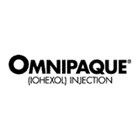
GE Healthcare's Omnipaque
(Iohexol) is an effective
oral contrast agent
PRINCETON, NJ - Low-osmolar contrast media, such as GE Healthcare's Omnipaque (Iohexol), make effective oral contrast agents for abdominal CT scans concluded a technical note written by a team of physicians from Johns Hopkins Medical and published in the March/April 2008 edition of the Journal of Computed Assisted Tomography.
"It [Low-osmolar contrast media] is relatively non-absorbable and of low risk to the patient if aspirated," according to the technical note. "It can be easily titrated to create the desired density. It is water-soluble and of low viscosity which permits uniform distribution. It does not precipitate out of the solution, as do other agents. It is inert and can be readily and completely eliminated. Lastly, it is almost tasteless and well tolerated by patients..."
"HOCM [High Osmolar Contrast Media] draws a large amount of water from the blood and body tissues into the intestinal lumen that can cause shifts of fluid and can result in dehydration, especially in infants and children," the note continued. "It can also result in undesired dilution of the contrast agent.5 If aspirated, these HOCM can cause life-threatening pulmonary edema.2,6 High-osmolar contrast medium can also cause mild-severe GI complaints (nausea, vomiting, cramps, and diarrhea), especially at high concentrations. "



Ad Statistics
Times Displayed: 59983
Times Visited: 1898 Ampronix, a Top Master Distributor for Sony Medical, provides Sales, Service & Exchanges for Sony Surgical Displays, Printers, & More. Rely on Us for Expert Support Tailored to Your Needs. Email info@ampronix.com or Call 949-273-8000 for Premier Pricing.
These findings are important, said Ciro Maria, Omnipaque CT Brand Manager for GE Healthcare. "Omnipaque is reported to be well tolerated by patients and has a neutral taste making it a good alternative for when an oral iodinated contrast medium is required."
Omnipaque is the only low-osmolar contrast medium available with an oral indication in the United States.
ABOUT OMNIPAQUE, SELECT SAFETY INFORMATION
Oral administration of OMNIPAQUE is most often associated with mild, transient diarrhea especially when high concentration and large volumes are administered. Nausea, vomiting and moderate diarrhea have also been reported following the oral use of OMNIPAQUE. Orally administered hypertonic contrast media draw fluid into the intestines which, if severe enough could result in hypovolemia. Plasma fluid loss may be sufficient to cause a shock-like state, which, if untreated, could be dangerous. This is especially pertinent to the elderly, cachectic patients of any age as well as infants and small children. For CT examinations using dilute oral plus intravenous contrast medium, adverse events are more likely to be associated with the intravenous injection than the hypotonic oral solution. It should be noted that serious or anaphylactoid reactions that may occur with intravascular iodinated media are possible following administration by other routes. Prior to OMNIPAQUE use, please review the Full Prescribing Information on the oral administration.

